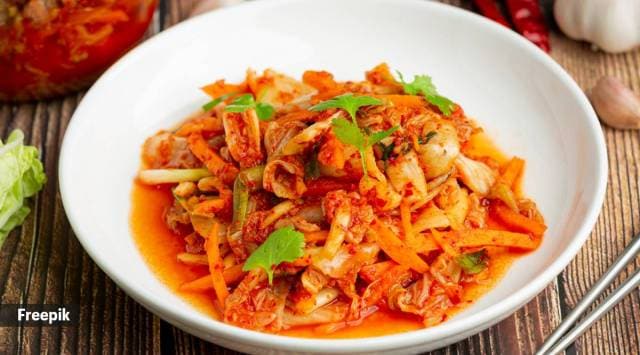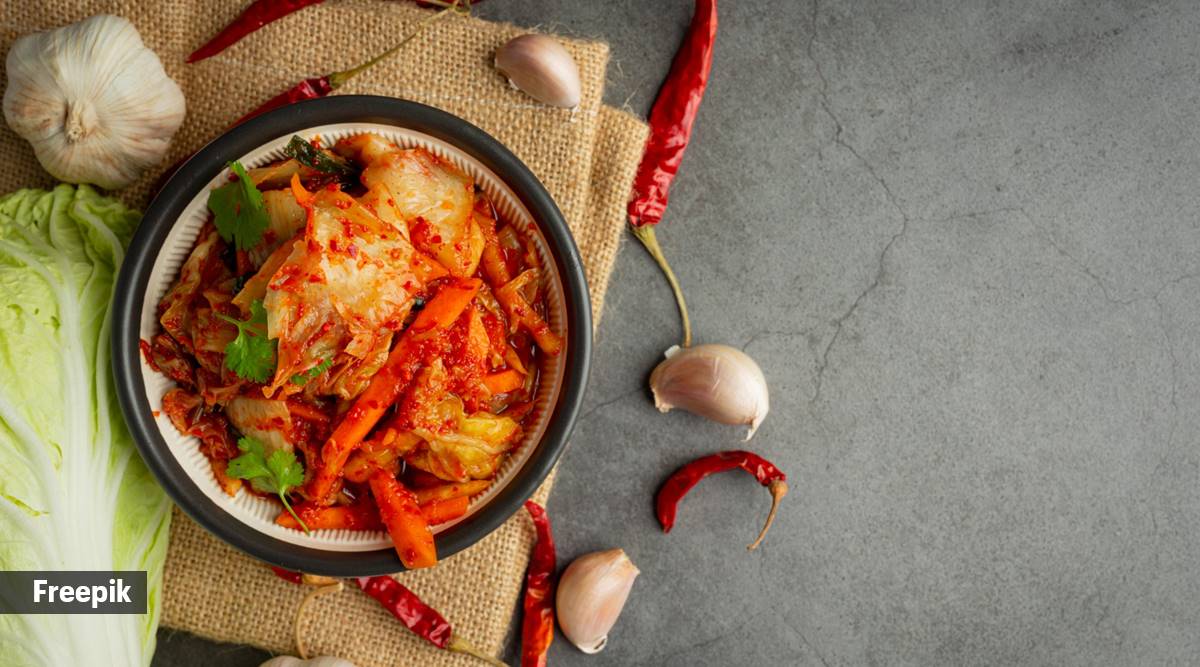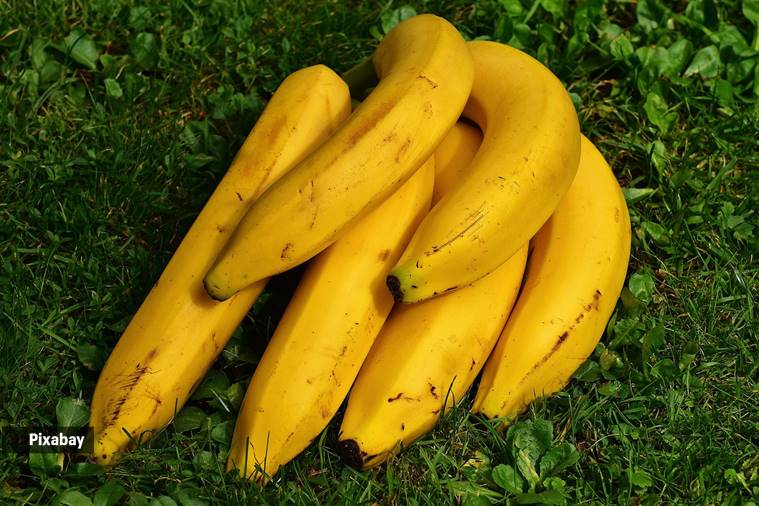📣 For more lifestyle news, click here to join our WhatsApp Channel and also follow us on Instagram
Best natural source of probiotics (that is better than supplements) is…
"Kimchi has over 900 different STRAINS of bacteria. The probiotic supplements you get will hardly have 12 - 15 strains," shared nutritionist Rashi Chowdhary.
 The traditional Korean dish is a fermented concoction primarily made from vegetables like napa cabbage, Korean radish, garlic, and ginger and is robust in flavours. (Source: Freepik)
The traditional Korean dish is a fermented concoction primarily made from vegetables like napa cabbage, Korean radish, garlic, and ginger and is robust in flavours. (Source: Freepik) Probiotics or good bacteria reside within our body’s gut and have various health benefits. From improving digestion to aiding the immune system to helping absorb nutrients to protecting against bad bacteria, we need these good microorganisms in our system for our body to function optimally.
Nowadays, in the market various probiotic supplements are available that fulfil your requirements. However, did you know there are plenty of natural ingredients from where you can get your probiotics? Not only that, but some of them can even be better than the packaged supplements that are marketed as providing various benefits.
One such superfood is our favourite Korean staple — Kimchi. The traditional Korean dish is a fermented concoction primarily made from vegetables like napa cabbage, Korean radish, garlic, and ginger and is robust in flavours. Explaining why you should consider including it in your diet instead of probiotic supplements, nutritionist Rashi Chowdhary took to Instagram to share, “I’m sure you didn’t know this, Kimchi has over 900 different STRAINS of bacteria. The probiotic supplements you get will hardly have 12 – 15 strains. Some good brands do go as high as 25 but that’s nothing compared to what you get in Kimchi.”
Chowdhary called kimchi a ‘superfood’ and termed it as ‘effective as any probiotic supplement, even better’.
View this post on Instagram
Why kimchi is better than probiotic supplements
Apart from having whooping 900 different strains of bacteria as compared to supplements that may have around 25 strains of bacteria, Chowdhary shared that kimchi can be an effective remedy against leaky gut. “4 strains of lactic acid bacteria found in Kimchi have very strong gluing capacity to your HT-29 cells, which are the cells that line your small and large intestines. These cells are affected first when you have a leaky gut. These 4 strains in kimchi can help glue back the loose junctions of a leaky gut,” she explained.
“Just 1 forkful of it every day and see the difference for yourself. 100 grams of Kimchi has about 10 billion CFU’s (colon-forming unit) which make this the best natural probiotic,” added Chowdhary.
 4 strains of lactic acid bacteria found in Kimchi had very strong gluing capacity to your HT-29 cells, these are the cells that line your small and large intestines. (Source: Freepik)
4 strains of lactic acid bacteria found in Kimchi had very strong gluing capacity to your HT-29 cells, these are the cells that line your small and large intestines. (Source: Freepik)
Agreeing with Chowdhary, Ushakiran Sisodia, Registered Dietician and Clinical Nutritionist, Diet and Nutrition, Nanavati Max Super Speciality Hospital told indianexpress.com, “Kimchi’s fermentation process fosters the growth of various probiotic strains. These beneficial microorganisms contribute to a range of health benefits, such as promoting gut health, enhancing immunity, aiding weight loss, combating inflammation and potentially slowing down the ageing process”.
Who should avoid kimchi
While kimchi is a powerhouse of healthy bacteria, it might not be suitable for everyone. Those prone to acid reflux may need to approach this spicy dish with caution. “Kimchi may not be suitable for individuals with specific health conditions, like gastrointestinal issues or arthritis,” shared Sisodia.
Other natural sources of probiotic
Apart from kimchi, there are various other natural sources of probiotics, including achaars (or pickles). Indian pickles also undergo a process of fermentation and sun-drying similar to kimchi. They also promote the growth of beneficial bacteria. However, the world of probiotics extends beyond kimchi and pickles.
Following are a few common probiotics and its indigenous sources, according to Sisodia:
1. Lactobacilli: Curd (Dahi), pickles (Achar), idli, dosa, dhokla and kanji.
 Indian pickles also undergo a process of fermentation and sun-drying similar to kimchi. (Source: Pixabay)
Indian pickles also undergo a process of fermentation and sun-drying similar to kimchi. (Source: Pixabay)
2. Bifidobacteria: Certain types of cheese like Cheddar and Mozzarella are sources, though they are not traditionally Indian. Probiotic supplements available in India also often contain this probiotic.
3. Streptococcus thermophilus: Yogurt, cheese (including Indian cottage cheese or paneer) and some probiotic supplements.
4. Fructooligosaccharides: Foods rich in this prebiotic fibre include garlic, onions, wheat, bananas and honey, which are common in Indian cuisine.
 Bananas are rich in prebiotic fibre Fructooligosaccharides. (Source: Pixabay)
Bananas are rich in prebiotic fibre Fructooligosaccharides. (Source: Pixabay)
“These probiotics are known to improve gut health and alleviate symptoms of irritable bowel syndrome. Understanding the right probiotic for you may seem overwhelming, given the vast range of options. However, investing time in learning about the various strains and forms of probiotics can significantly improve your health,” Sisodia concluded.
📣 For more lifestyle news, follow us on Instagram | Twitter | Facebook and don’t miss out on the latest updates!
📣 For more lifestyle news, click here to join our WhatsApp Channel and also follow us on Instagram






- 01
- 02
- 03
- 04
- 05





















